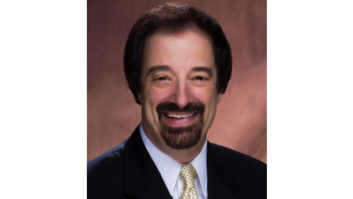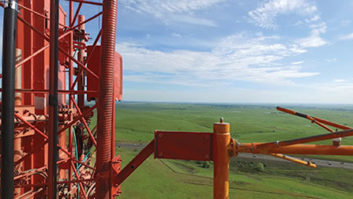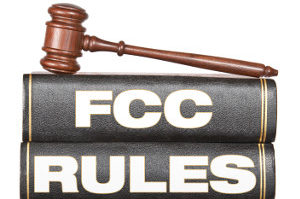Last month, the Federal Communications Commission tweaked its rules for noncommercial broadcasters, expanding their ability to conduct fundraising events for third parties, as well as providing relief for their preparation of biennial ownership reports due Dec. 1.
DISASTER RELIEF AND NON-COMM FUNDRAISING
First, the FCC has long prohibited noncommercial broadcasters from interrupting or suspending their station�s regular programming to conduct on-air fundraising for third-parties. Instead, these broadcasters were required to seek a waiver from the FCC prior to the event, which the FCC has granted in limited circumstances.

For example, the FCC has granted waivers to permit fundraising in the wake of Hurricanes Andrew, Katrina and Sandy; the Sept. 11, 2001, terrorist attack; and the tornadoes that struck Moore, Okla., in 2013. The common threads running through the FCC�s waiver approvals is that the fundraising was tied to a significant event that occurred in the local community, and that fundraising would be limited in duration.
On the other hand, the FCC has denied waivers when the fundraising would have addressed long-term or ongoing issues.
To that end, the FCC revised its rules to provide the flexibility to noncommercial broadcasters to conduct fundraising for third-party organizations up to 1 percent of their total annual airtime, i.e., approximately 88 hours annually or 1.7 hours per week for full-time broadcast stations.
The new flexibility will not be available to those noncommercial broadcasters that receive funds from the Corporation for Public Broadcasting. During the proceeding, all but one CPB-funded station informed the FCC that they did not wish to have this new-found ability. For these stations, the FCC will continue to review waiver requests.
In the event that a station elects to conduct a fundraiser, it must disclose to its listeners that the programming is being provided for the benefit of the third-party organization. While the FCC did not adopt specific language for the disclosure, the FCC will require that the public be informed at both the beginning and the end of the programming, and at least once each hour during the program.
Finally, while the FCC will permit the broadcast licensee to be reimbursed by the third-party organization for the station�s expenses in producing and conducting the program, the station is not permitted to receive �additional consideration� beyond those verifiable costs.
FRNs
The FCC also adopted rules to permit noncommercial broadcasters to obtain �Special Use Federal Registration Numbers� for their board members when filing their biennial ownership reports (FCC Form 323-E). The FCC requires officers, directors and other persons with reportable ownership interests in commercial broadcast stations to obtain a Federal Registration Number, which is included in the biennial ownership reports filed by commercial broadcast stations (FCC Form 323).
In January 2016, the FCC extended the requirement to obtain personal information (including Social Security numbers) from each officer and member of the board of noncommercial broadcasters, as well.
While the noncommercial broadcaster could obtain a Restricted Use FRN, which only required the last four digits of a board member�s Social Security number, the licensee was required to certify that it used �reasonable and good faith efforts� to obtain the complete information from each board member, if it used a Special Use FRN.
The order also indicated that the FCC may take enforcement action against those board members refusing to provide sufficient information for a noncommercial broadcaster�s use of a Restricted Use FRN. Then-Commissioner Pai and Commissioner O�Reilly objected to this language. Immediately prior to the leadership transition at the FCC, the Media Bureau, acting on delegated authority, denied the pending requests to reconsider the requirement.
Upon the ascension of Chairman Pai, the commission returned the reconsideration petitions to �pending� status, and last month�s order granted the requested relief. As such, noncommercial broadcasters will now be able to use Special Use FRNs, which will not require the collection and disclosure of personal data for each board member.
It is expected that this revised rule will become effective prior to the Dec. 1 filing deadline for all broadcast stations.
FCC UPDATE:
June 1 � Annual EEO public file reports for stations located in Arizona, Idaho, Maryland, Michigan, Nevada, New Mexico, Ohio, Utah, Virginia, West Virginia, Wyoming and Washington, D.C., with five or more full-time employees.
June 1 � Broadcast Mid-Term Report (FCC Form 397) for stations located in Arizona, Idaho, Nevada, New Mexico, Utah and Wyoming with 11 or more full-time employees.
July 10 � Issues/Programs Lists for second quarter of 2017 must be placed in/uploaded to stations� public inspection file.











